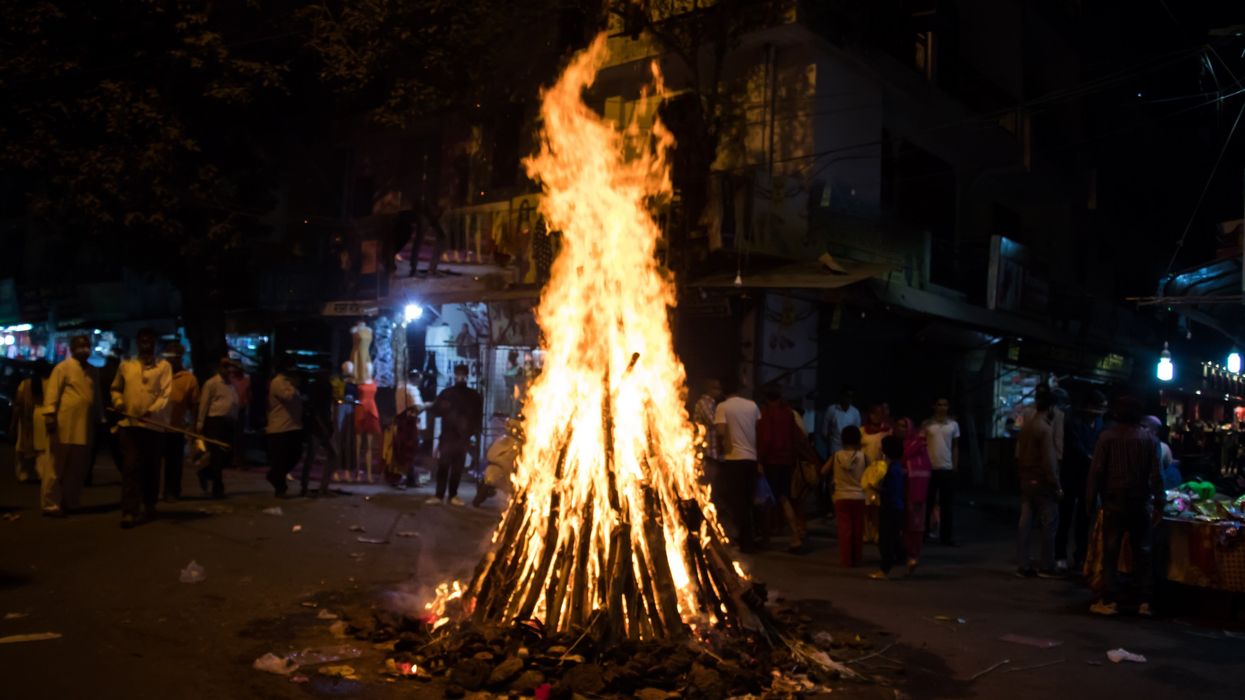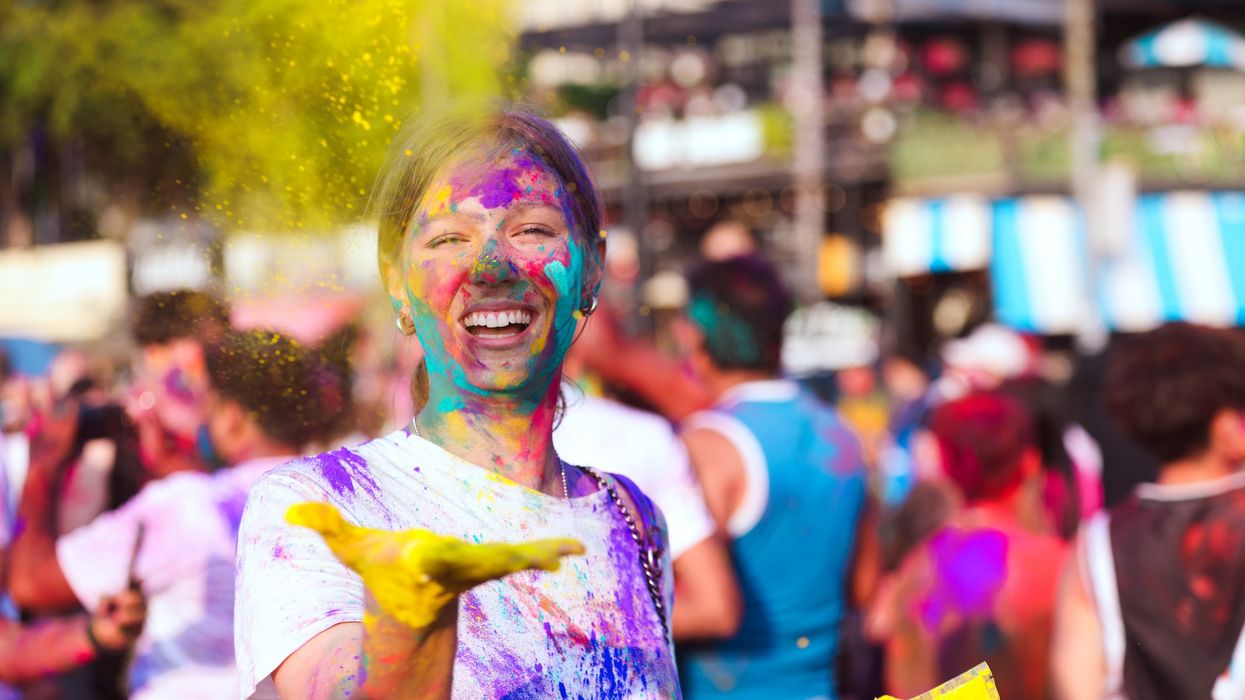Holi, the high-spirited Hindu festival of colours, love, and spring, is one of the most joyous celebrations in India and among Indian communities worldwide. In 2025, Holi will be celebrated on Friday, March 14, with the preceding evening marked by Holika Dahan (the ritual of lighting bonfires) on Thursday, March 13. Known as the “Festival of Colours,” Holi welcomes the arrival of spring and symbolises the triumph of good over evil.
Key dates and timings you need to know
Holi is observed on the full moon day of the Hindu lunar month of Phalguna, which usually falls in February or March according to the Gregorian calendar. In 2025, the festivities will begin with Holika Dahan on the evening of March 13, followed by the main day of Holi on March 14.
The Holika Dahan Muhurat (auspicious timing) for 2025 is from 11:26 PM on March 13 to 12:19 AM on March 14, lasting approximately 53 minutes. According to traditional Hindu calendars, Holika Dahan should be performed after sunset during Pradosh (the twilight period) when the full moon is visible. It is advised to avoid the Bhadra period, which is considered inauspicious for rituals.
Here are the key timings for Holika Dahan 2025:
- Full Moon Begins: March 13, 2025, at 10:35 AM.
- Full Moon Ends: March 14, 2025, at 12:23 PM.
- Bhadra Timings: 06:57 PM to 08:14 PM and 08:14 PM to 10:22 PM.
The two-day celebration
Holi is typically celebrated over two days. The first day, known as Holika Dahan or Chhoti Holi, involves lighting bonfires to symbolise the burning of evil. The second day, called Rangwali Holi or Dhulandi, is the main event, where people play with coloured powders and water, drenching each other in vibrant hues.
Timeless tales and cultural significance

The festival of Holi is deeply rooted in Hindu mythology, with its origins tied to the story of Prahlada and Holika. According to legend, Prahlada, a young devotee of Lord Vishnu, was saved from his evil father, Hiranyakashipu and his aunt Holika, who tried to burn him in a pyre. Holika, who had a boon immune to fire, was consumed by the flames instead, while Prahlada emerged unharmed. This story symbolises the victory of good over evil and is commemorated through Holika Dahan.
Another significant aspect of Holi is its association with Lord Krishna, a beloved Hindu deity, and his consort, Radha. The playful throwing of colours is said to originate from Krishna’s childhood, where he would playfully drench Radha and other Gopi’s (milkmaids) with coloured water. This divine love story adds a layer of romance and joy to the festival.
Beyond its mythological roots, Holi also marks the end of winter and the beginning of spring, making it a harvest celebration. It is a time for communities to come together, forgive past grievances, and strengthen bonds.
A look into how holi is celebrated
The festivities of Holi are a riot of colours, music, and dance. On the first day, families and communities gather around bonfires to perform rituals and offer prayers. The burning of Holika signifies the destruction of negativity and the renewal of hope.
The second day is a carnival of colours. People of all ages take to the streets, parks, and open spaces, smearing each other with coloured powders and spraying water. Traditional sweets like gujiya (sweet dumplings), malpua (pancakes), and thandai (a spiced milk drink) are prepared and shared, adding to the festive spirit.
In regions like Mathura and Vrindavan, the celebrations are particularly grand, with week-long events reenacting the playful antics of Lord Krishna. Similarly, in Punjab, Hola Mohalla is celebrated with martial arts displays and community feasts.
Holi’s global appeal
While Holi originated in India, its vibrant and inclusive nature has made it a global phenomenon. Countries like the UK, the US, Canada, and Australia host large-scale Holi events, attracting people from diverse backgrounds. These celebrations often feature live music, dance performances, and eco-friendly colours, making them a unique blend of tradition and modernity.
In the UK, cities like London, Birmingham, and Manchester host colourful Holi festivals, where people come together to enjoy music, dance, and the playful throwing of colours. These events are a wonderful way for people of all cultures to experience the joy and unity that Holi represents.
The essence of holi
At its core, Holi is a celebration of life, love, and unity. It transcends religious and cultural boundaries, bringing people together in a spirit of joy and camaraderie. The festival encourages forgiveness, reconciliation, and the renewal of relationships, making it a deeply meaningful occasion.
As Holi 2025 approaches, the anticipation builds for another year of vibrant celebrations. Whether you’re drenched in colours, enjoying traditional delicacies, or simply soaking in the festive atmosphere, Holi is a time to embrace happiness and spread positivity.
So, mark your calendars for March 14, 2025, and get ready to immerse yourself in the kaleidoscope of colours that is Holi! Whether you’re celebrating in India or joining a local event in the UK, Holi is a festival that promises joy, connection, and unforgettable memories.







 Naeli and the secret song
Naeli and the secret song









 Jamie Lloyd’s Evita with Rachel Zegler set for Broadway after London triumphInstagram/
Jamie Lloyd’s Evita with Rachel Zegler set for Broadway after London triumphInstagram/
 A compelling premise, layered and unpredictable charactersAMG
A compelling premise, layered and unpredictable charactersAMG Anyone who enjoys a gripping story with a diverse cast and unexpected twistsHarperFiction
Anyone who enjoys a gripping story with a diverse cast and unexpected twistsHarperFiction
 The Story Teller by Ley Roberts
The Story Teller by Ley Roberts Summer Exhibition coordinator Farshid Moussavi, with Royal Academy director of exhibitions Andrea Tarsia in the background
Summer Exhibition coordinator Farshid Moussavi, with Royal Academy director of exhibitions Andrea Tarsia in the background An installation by Ryan Gander
An installation by Ryan Gander A sectional model of DY Patil University Centre of Excellence, Mumbai, by Spencer de Grey
A sectional model of DY Patil University Centre of Excellence, Mumbai, by Spencer de Grey Rituals and Identity and Theatre of Resistance by Arinjoy Sen
Rituals and Identity and Theatre of Resistance by Arinjoy Sen
 An explosive new play that fuses biting satire, history and heartfelt storytellingPleasance
An explosive new play that fuses biting satire, history and heartfelt storytellingPleasance